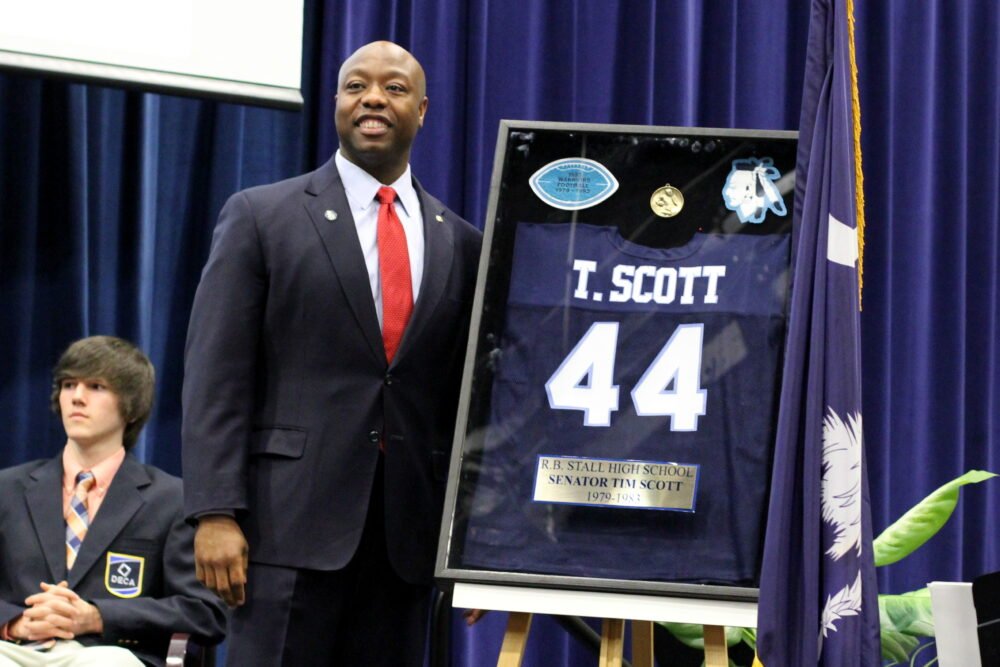Sen. Tim Scott (R-S.C.) has officially filed paperwork finally to run for the Republican nomination in the 2024 presidential election. As the most prominent Black figure in the Republican Party and a successful fundraiser, Scott’s entry into the race adds to the crowded field that includes former South Carolina Gov.
Nikki Haley and former President Trump. Scott actively engages with voters in Iowa, New Hampshire, and South Carolina as part of his “Faith in America” listening tour. Other declared candidates in the GOP primary include former Arkansas Gov. Asa Hutchinson and entrepreneur Vivek Ramaswamy. Florida Gov.
Ron DeSantis is also expected to announce his presidential bid soon. Scott’s campaign will focus on presenting himself as a consistently conservative candidate with a personal story of overcoming adversity, advocating for policy issues, and emphasizing the U.S. as a land of opportunity.
He aligns with much of Trump’s policy agenda but aims to offer a more promising approach. Scott enters the race with $22 million in campaign funds and will be led by Jennifer DeCasper, the first woman of color to run a GOP presidential campaign.
However, Scott faces a challenge in a divided GOP electorate that favors Trump and DeSantis.
Scott’s campaign will be led by Jennifer DeCasper. The campaign has also enlisted the support of well-known GOP firms Targeted Victory and FP1 Strategies.
In addition, Scott’s aligned super PAC, Opportunity Matters Fund Action, has been actively hiring staff in South Carolina and across the country in preparation for his announcement.
Throughout his time in the Senate, Scott has made significant contributions, such as delivering the GOP response to President Biden’s first address to Congress in 2021 and playing a role in crafting the well known TCJA (Tax Cuts and Jobs Act) in 2017. He championed a provision that created tax incentives for businesses investing in economically disadvantaged communities.
Scott has demonstrated a delicate balance in addressing racial issues within the Republican Party. While privately educating his GOP colleagues on his experiences with racism and speaking out on race relations, he has also aimed to maintain positive relationships.
He supported criminal justice and police reform following the death of George Floyd but voted against the bipartisan infrastructure bill and protections for same-sex marriage.
However, Scott faces an uphill battle in the presidential race as the Republican electorate is currently divided between the support for Trump and DeSantis.
Despite his strong conservative credentials, fundraising prowess, and compelling personal story, he must navigate the political landscape carefully to differentiate himself from other contenders and gain traction among GOP voters.







